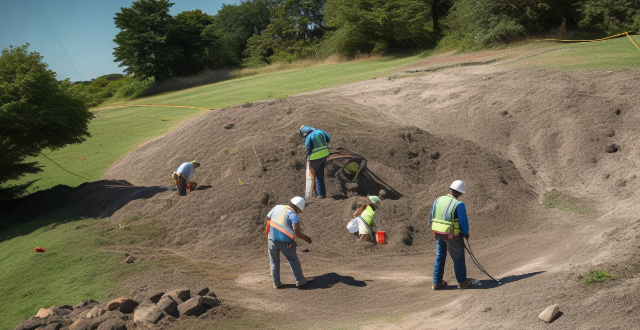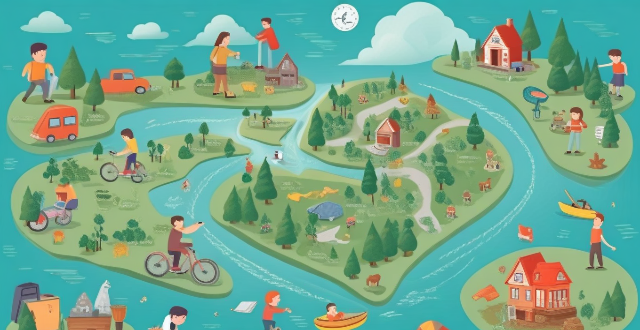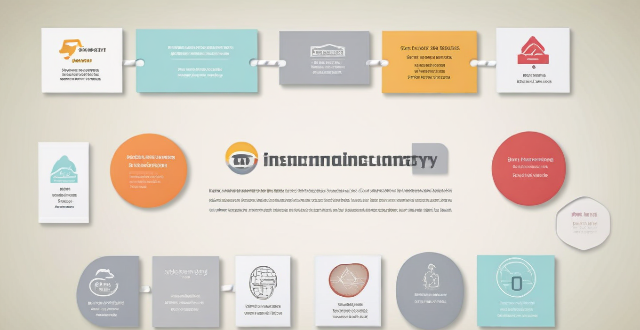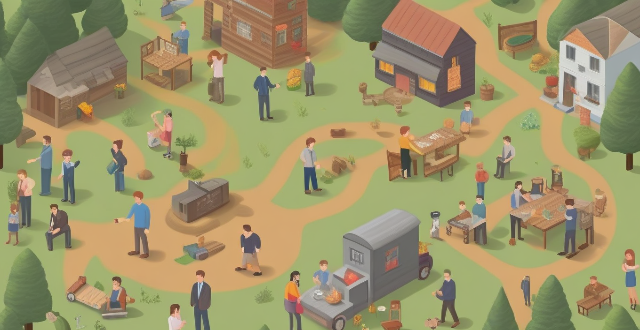Safety Stay

How can women stay connected with friends and family back home for safety purposes while traveling ?
Women can stay connected with friends and family for safety purposes while traveling by using regular check-ins, social media updates, emergency contact apps, email updates, messaging platforms, portable chargers and Wi-Fi solutions, safety apps, pre-planned signals, traditional mail, and wearable technology. These methods ensure effective communication and peace of mind for both the traveler and their loved ones.

What should I do to ensure my personal safety during a backpacking trip ?
Backpacking trips can be an exhilarating adventure, but it's crucial to prioritize personal safety. Here are some essential tips to help you stay safe while enjoying the great outdoors: ## Research and Plan Ahead - **Research the area**: Familiarize yourself with the terrain, weather patterns, and potential hazards of your destination. - **Plan your route**: Create a detailed itinerary and share it with someone who is not accompanying you on the trip. - **Check the forecast**: Keep an eye on the weather and be prepared to adjust your plans accordingly. ## Essential Gear and Equipment - **Pack appropriate gear**: Ensure you have all the necessary equipment, including a tent, sleeping bag, cooking supplies, and navigation tools. - **Wear proper clothing**: Dress in layers and choose fabrics that can handle various weather conditions. - **Carry a first aid kit**: Include items such as bandages, antiseptic wipes, and any prescription medications you might need. ## Stay Informed and Connected - **Bring a map and compass**: Even if you have a GPS device or smartphone, traditional navigation tools can be lifesavers. - **Have a reliable means of communication**: Carry a charged cell phone and consider bringing a satellite phone or emergency beacon for remote areas. - **Know where to find help**: Locate the nearest ranger station, medical facility, or other sources of assistance before you set out. ## Practice Good Trail Etiquette - **Stick to established trails**: Avoid veering off the path to minimize your impact on the environment and reduce the risk of getting lost. - **Respect wildlife**: Maintain a safe distance from animals and never approach them. - **Be aware of other hikers**: Yield appropriately and communicate clearly when passing others on the trail. ## Follow Basic Safety Guidelines - **Hike with a partner**: Having someone with you can significantly increase your safety. - **Avoid hiking at night**: Visibility is limited, and nocturnal creatures are more active after dark. - **Stay hydrated and nourished**: Drink plenty of water and eat regular meals to maintain your energy levels. By following these guidelines, you can enjoy a safe and enjoyable backpacking trip while minimizing risks and being prepared for any situation that may arise. Remember, safety should always be your top priority when venturing into the wilderness.

What are the top safety tips for women traveling alone ?
Traveling alone as a woman can be empowering, but safety is crucial. Research your destination, stay connected with friends and family, choose accommodations carefully, dress appropriately, trust your instincts, and consider carrying self-defense tools. Stay prepared, aware, and confident to handle unexpected situations.

How can I stay safe while backpacking alone ?
Backpacking alone can be an exhilarating experience, but it also comes with risks. To ensure your safety, here are some tips to consider: ## Research Your Destination Before embarking on your journey, research your destination thoroughly. Look for information about the local culture, customs, and laws. Check for any travel warnings or advisories issued by your government. This will help you avoid dangerous areas and stay informed about potential risks. ## Plan Your Route Carefully Plan your route carefully, taking into account the terrain, weather conditions, and availability of resources such as food, water, and shelter. Make sure you have a map and compass or GPS device to navigate your way. Stick to well-traveled paths and avoid remote areas where help may not be readily available. ## Pack Smart Pack only what you need and leave unnecessary items behind. Bring a first aid kit, a flashlight, extra batteries, and a portable charger for your phone. Wear appropriate clothing and footwear for the climate and terrain. Carry enough food and water to last you for several days in case of an emergency. ## Stay Connected Stay connected with friends and family by sharing your itinerary and checking in regularly. Let them know when you plan to return and who to contact if they don't hear from you within a reasonable timeframe. Consider carrying a satellite phone or personal locator beacon for emergencies. ## Be Aware of Your Surroundings Stay alert and aware of your surroundings at all times. Avoid walking alone at night or in isolated areas. Trust your instincts and avoid situations that make you feel uncomfortable or unsafe. If someone approaches you, be polite but firm in declining their offers or requests. ## Learn Basic Self-Defense Techniques Learn basic self-defense techniques before embarking on your journey. This will give you confidence and help you protect yourself in case of an attack. Consider taking a self-defense class or watching instructional videos online. ## Follow Local Laws and Customs Respect local laws and customs, even if they differ from what you are accustomed to. This will help you avoid conflicts with locals and show respect for their culture. Dress appropriately and behave modestly, especially in conservative communities. ## Seek Help When Needed If you encounter any problems or feel unsafe, seek help immediately. Contact local authorities, tourist information centers, or other travelers for assistance. Don't hesitate to ask for help if you need it.

How can I stay safe during adventure travel activities ?
Adventure travel activities can be exciting and thrilling, but they also come with certain risks. To ensure your safety during these activities, it's important to take necessary precautions and follow some basic guidelines. Here are some tips on how to stay safe during adventure travel activities: 1. Research and plan ahead before embarking on any adventure travel activity. Check the weather conditions, terrain, and potential hazards. 2. Choose reputable operators for your adventure travel activity. Look for operators that are licensed, insured, and adhere to safety standards. 3. Follow safety guidelines provided by the operator during the activity. Wear protective gear such as helmets, harnesses, or life jackets. 4. Make sure you are physically fit and healthy enough to participate in the adventure travel activity. If you have any pre-existing medical conditions or injuries, consult with a doctor beforehand. 5. Pack essential gear and supplies for the adventure travel activity, including appropriate clothing, footwear, sunscreen, insect repellent, and first aid kit. 6. Stay alert and attentive during the adventure travel activity. Keep an eye out for potential hazards such as uneven terrain, loose rocks, or changing weather conditions. 7. Use common sense and trust your instincts during the adventure travel activity. If something feels too risky or dangerous, don't hesitate to back out or seek assistance from the guides or other participants. By following these tips, you can minimize the risks associated with adventure travel activities and enjoy a safe and memorable experience.

How can parents effectively teach their children about safety ?
Teaching children about safety is crucial for their well-being. Parents can effectively teach their children about safety by establishing clear rules, educating them about potential dangers, practicing safety drills, encouraging open communication, and modeling safe behavior. By doing so, children will develop awareness and the ability to protect themselves from potential dangers.

What are some effective strategies for teaching water safety to children ?
Water safety is an essential skill that every child should learn, especially during the summer months when they are more likely to be around water. Here are some effective strategies for teaching water safety to children: Start early, set clear rules, use visual aids, practice makes perfect, role playing, stay close and supervised, teach risk assessment, and be a good example.

How do I stay focused while studying ?
Staying focused while studying is crucial for effective learning. Here are some tips to help you stay focused: 1\. Create a study schedule: Set specific goals, plan your time wisely, and stick to the schedule. 2\. Eliminate distractions: Turn off your phone, close unnecessary tabs, and find a quiet place to study. 3\. Take breaks: Take short breaks every hour or so, use the Pomodoro technique, and avoid social media during your breaks. 4\. Stay motivated: Set rewards for yourself, visualize success, and stay positive. 5\. Practice good study habits: Actively engage with the material, review regularly, and get enough sleep.

How can schools improve their food safety standards ?
Improving food safety standards in schools is crucial for protecting the health of students and staff. Here are some ways that schools can enhance their food safety practices: 1. Implement a HACCP System 2. Train Staff on Food Safety 3. Use Proper Handling and Cooking Techniques 4. Maintain Cleanliness and Sanitation 5. Enforce Strict Ingredient Sourcing Policies 6. Establish Clear Policies for Illness Reporting 7. Conduct Regular Audits and Reviews

How can technology be used to enhance child safety education ?
Technology can significantly enhance child safety education through various strategies such as interactive learning applications, virtual reality experiences, online safety courses, wearable devices, and social media engagement. These tools not only make learning fun and engaging but also provide practical, real-world simulations that help children develop essential safety skills. By utilizing these modern methods, we can equip the younger generation with the knowledge and confidence needed to stay safe in a rapidly changing world.

Is it safer to stay in a high-rise building during an earthquake or evacuate ?
The article discusses the safety considerations for staying in or evacuating a high-rise building during an earthquake. It outlines the advantages and disadvantages of both options, such as structural integrity, risk of falling debris, and access to emergency services. The decision should be based on factors like the severity of the earthquake, the building's structural integrity, and available safety precautions. Being prepared with an emergency kit and knowledge of proper safety procedures is crucial for ensuring well-being during these events.

What are the safety precautions I should take during a solo road trip ?
When preparing for a solo road trip, prioritize safety by maintaining your vehicle, packing an emergency kit with essentials like a first aid kit and tools, planning your route using GPS and paper maps, ensuring communication is possible through a charged phone and roadside assistance, staying alert and locking doors for personal safety, checking the weather forecast and having rain gear, taking care of your health by staying hydrated and taking breaks, carrying necessary documentation including driver's license, registration, and insurance, and making copies of important documents. These precautions will help ensure a safer and more enjoyable journey.

What are some essential travel safety tips for international tourists ?
Traveling to a foreign country can be an exciting adventure, but it's important to prioritize safety during your journey. Here are some essential travel safety tips for international tourists: ## Research Your Destination Before embarking on your trip, research the destination thoroughly. Familiarize yourself with local customs, laws, and cultural norms. This will help you avoid any misunderstandings or unintentional offenses that could put you in harm's way. ### Learn Basic Phrases in the Local Language Knowing how to say simple phrases like "hello," "goodbye," "thank you," and "I don't understand" in the local language can go a long way in helping you communicate with locals and navigate your way around. ### Check the Weather Forecast Be prepared for any weather conditions by checking the forecast before you leave. Pack appropriate clothing and gear to ensure your comfort and safety throughout your trip. ## Stay Informed About Safety Concerns Stay up-to-date on any safety concerns or travel warnings related to your destination. The U.S. Department of State maintains a website with current information on safety issues and advisories for travelers. ### Register With Your Embassy or Consulate Register your travel plans with your embassy or consulate so they can contact you in case of an emergency or natural disaster. This is especially important if you plan to visit remote areas where communication might be limited. ## Be Cautious With Your Belongings When traveling abroad, it's crucial to take precautions to protect your belongings from theft or loss. Here are some tips to keep your valuables safe: ### Keep Your Valuables Close at Hand Carry only what you need when sightseeing or exploring new places. Keep your passport, cash, credit cards, and other valuables secure in a money belt or hidden pocket. ### Use Hotel Safes Wisely Hotel safes are convenient for storing valuable items while you're out and about. However, be aware that not all hotel safes are foolproof. Some may have vulnerabilities that could allow thieves to access your belongings. Always exercise caution when using hotel safes and consider bringing along a portable lock for added security. ### Be Mindful of Your Surroundings Stay alert and aware of your surroundings at all times. Avoid displaying expensive jewelry or electronics in public places, as these items can attract unwanted attention from pickpockets and thieves. If possible, try to blend in with the local crowd by dressing conservatively and avoiding flashy accessories. ## Follow Local Laws and Customs Respecting local laws and customs is essential for staying safe while traveling abroad. Here are some tips to help you navigate this aspect of international travel: ### Obey Local Laws Familiarize yourself with the legal system and laws of the country you're visiting. This includes understanding the penalties for breaking the law, which can vary widely depending on the country. Remember that what might be legal in your home country could be illegal elsewhere. ### Respect Local Customs Be mindful of local customs and traditions when interacting with locals. Dress appropriately for religious sites and respect their rules regarding photography and behavior. Additionally, be aware of social norms regarding physical contact (such as handshakes or hugs) and follow them accordingly. ## Seek Medical Attention When Needed If you become ill or injured during your trip, seek medical attention promptly. Here are some tips to help you stay healthy while traveling: ### Pack a First Aid Kit Bring a basic first aid kit with essential items such as bandages, antiseptic wipes, pain relievers, and any prescription medications you might need. This will help you handle minor injuries and illnesses without having to search for medical supplies in an unfamiliar place. ### Know Where to Go for Medical Help Research nearby hospitals and clinics before you leave home so you know where to go if you need medical assistance during your trip. It's also a good idea to purchase travel insurance that includes coverage for medical emergencies.

What are the key elements of child safety education ?
Child safety education is crucial for the well-being and protection of children. It involves teaching children about potential dangers and how to avoid them. This educational process helps children develop a sense of awareness, responsibility, and self-protection. In this article, we will discuss the key elements of child safety education. The main elements of child safety education include personal safety, stranger danger, internet safety, home safety, school safety, and road safety. Personal safety includes teaching children about personal boundaries, private parts, and inappropriate behaviors. Stranger danger education helps children identify potential threats from unknown individuals. Internet safety education is essential in today's digital age. Home safety education focuses on creating a safe environment for children at home. School safety education aims to create a safe learning environment for children. Road safety education is crucial for children who walk or cycle to school or play outside. By focusing on these key elements of child safety education, we can help children develop the skills and knowledge they need to stay safe and protect themselves from potential dangers. Child safety education is an ongoing process that requires the involvement of parents, schools, communities, and governments.

What should I know about local laws and customs to ensure my safety ?
When traveling or living abroad, it's crucial to understand local laws and customs for your safety. Research beforehand about drug laws, traffic regulations, prohibited items, cultural sensitivities, dress codes, gestures, social norms, and business etiquette. Upon arrival, observe local behavior, ask questions, stay informed, respect authorities, carry ID, know emergency numbers, avoid risky situations, be mindful of surroundings, and trust instincts. By doing so, you can reduce legal and safety risks and ensure a safe and enjoyable experience.

How do safety regulations affect the manufacturing industry ?
Safety regulations are critical in manufacturing for worker safety, environmental protection, and product quality assurance but can increase costs and administrative burden while potentially slowing innovation.

How can I educate my family about earthquake safety and evacuation procedures ?
Educating your family about earthquake safety and evacuation procedures is crucial due to the unpredictable nature of earthquakes. Understanding the basics of earthquakes, creating a safety plan, learning evacuation procedures, conducting drills, and staying informed are all important steps in ensuring your family's safety during an earthquake. By following these steps, you can prepare your family for earthquakes and ensure they know what to do in case of an emergency.

How do safety signs help in preventing accidents and injuries at workplaces ?
Safety signs play a crucial role in preventing accidents and injuries at workplaces. They provide important information about potential hazards, safety procedures, and emergency exits. By following the instructions on these signs, employees can avoid dangerous situations and stay safe while working. There are four main types of safety signs: warning signs, mandatory signs, prohibition signs, and emergency signs. Warning signs alert workers to potential hazards or dangerous conditions; mandatory signs indicate actions that must be taken to ensure safety; prohibition signs prohibit certain actions that may cause harm or damage; and emergency signs guide workers to emergency exits, first aid kits, and fire extinguishers. Safety signs have numerous benefits. They increase awareness by being brightly colored and placed in prominent locations. They prevent accidents by providing clear instructions on what actions need to be taken to prevent accidents. They ensure compliance with regulations by displaying the appropriate signs required by law. Finally, they improve evacuation processes by indicating emergency exits and evacuation routes. In conclusion, safety signs are essential for creating a safe work environment. By following the guidelines on safety signs, workers can protect themselves and their colleagues from harm and prevent accidents and injuries at workplaces.

How can I stay motivated while working towards my career goals ?
The text provides a detailed guide on how to stay motivated while working towards your career goals. It emphasizes the importance of setting clear and achievable goals, breaking them down into smaller tasks, staying organized, finding inspiration, taking care of yourself, embracing challenges, seeking support, and celebrating your successes. The tips provided in the text are practical and actionable, making it easier for individuals to maintain focus and drive throughout their career journey. Overall, the text offers valuable insights and advice on how to stay motivated and achieve success in one's career.

How can I ensure that my employees understand the meaning of various safety signs ?
To ensure that employees understand safety signs, conduct regularTo ensure that employees understand safety signs, conduct regular aids like posters and Conduct mock drills and encourage open communication through Q&A sessions and suggestion boxes. Provide access to online resources and printed materials for continuous learning.

How can I overcome procrastination and stay motivated to study ?
Procrastination is a common problem that affects many students. It can be challenging to stay motivated and focused on your studies, especially when there are so many distractions around you. However, there are several strategies you can use to overcome procrastination and stay motivated to study. Here are some tips: - Set clear goals for yourself. Make sure your goals are specific, measurable, achievable, relevant, and time-bound (SMART). For example, instead of saying "I want to do well in my math class," say "I want to score at least 90% on my next math test." Having a clear goal will help you stay focused and motivated. - Break tasks into smaller, more manageable chunks. Large tasks can be overwhelming and lead to procrastination. To avoid this, break your tasks into smaller, more manageable chunks. For example, if you have a research paper to write, break it down into smaller tasks such as selecting a topic, conducting research, creating an outline, writing the introduction, etc. Completing each small task will give you a sense of accomplishment and keep you motivated. - Create a study schedule. Creating a study schedule can help you stay organized and on track. Allocate specific times for studying, breaks, and other activities. Stick to your schedule as much as possible, but also be flexible enough to adjust it if necessary. Having a plan will help you avoid wasting time and reduce the likelihood of procrastination. - Eliminate distractions. Distractions can easily lead to procrastination. To avoid this, eliminate distractions such as social media, television, or video games during your study time. Find a quiet place where you can focus without interruptions. Turn off your phone or put it on silent mode to avoid distractions from notifications. - Use time management techniques. Using time management techniques such as the Pomodoro technique or the Eisenhower matrix can help you stay focused and productive. The Pomodoro technique involves working for 25 minutes and then taking a five-minute break. The Eisenhower matrix helps you prioritize tasks based on their urgency and importance. These techniques can help you manage your time effectively and reduce procrastination. - Reward yourself. Rewarding yourself after completing a task can help you stay motivated. Set up rewards for yourself after completing each task or reaching a milestone. For example, you could treat yourself to a favorite snack or watch an episode of your favorite TV show after finishing a study session. This will give you something to look forward to and keep you motivated. - Seek support. Finally, seek support from friends, family, or teachers if you're struggling with procrastination. They can offer encouragement, advice, or accountability to help you stay on track. Joining a study group or finding a study partner can also provide motivation and support. In conclusion, overcoming procrastination requires discipline, planning, and self-motivation. By setting clear goals, breaking tasks into smaller chunks, creating a study schedule, eliminating distractions, using time management techniques, rewarding yourself, and seeking support, you can stay motivated and focused on your studies.

Are there any safety precautions I should take during a wildlife tour ?
Wildlife tours can be an exciting and enriching experience, but they also come with certain risks. It is important to take necessary precautions to ensure your safety and the well-being of the animals you are observing. Some safety measures that you should consider before embarking on a wildlife tour include staying alert, following guidelines and rules, dressing appropriately, bringing essential items, and taking specific safety measures for different wildlife encounters. By following these safety precautions, you can minimize the risks associated with wildlife tours and enjoy a memorable experience while respecting the natural environment and its inhabitants.

How do I stay motivated during tough workouts or games ?
To stay motivated during tough workouts or games, set clear goals, find your why, track your progress, surround yourself with supportive people, and celebrate your achievements.

How can I stay focused during long study sessions ?
To stay focused during long study sessions, create aTo stay focused during long study sessions, create a by minimizing distractions create a conducive environment by minimizing distractions and optimizing your workspace. Establish a routine with clear objectives and stick to a schedule. Use time management techniques like the Pomodoro technique and prioritize tasks. Stay motivated and engaged by rewarding yourself and mixing up your study methods. Take care of yourself by getting adequate sleep, eating healthy meals, and exercising regularly.

How can I stay motivated while using online learning resources ?
To stay motivated while using online learning resources, oneTo stay motivated while using online learning resources, one create a study plan, find By following these tips, one can make the most of their online learning experience and achieve their desired outcomes.

What techniques can help me stay calm during a test ?
Techniques to Stay Calm During a Test Staying calm during a test can greatly improve your performance. Here are some techniques that can help you stay focused and relaxed: 1. Deep Breathing: Take slow, deep breaths to slow down your heart rate and lower your blood pressure, reducing feelings of anxiety and stress. 2. Visualization: Picture yourself successfully completing the test and achieving your desired outcome, boosting your confidence and relaxation. 3. Positive Self-Talk: Replace negative thoughts with positive affirmations that boost your confidence and motivation. 4. Break Down the Test into Smaller Parts: Focus on one question at a time without worrying about the others. 5. Time Management: Allocate enough time for each section of the test and stick to your plan, working steadily but efficiently.

What are the safety regulations for electrical work ?
Electrical work involves a high level of risk, and it is essential to follow strict safety regulations to prevent accidents and injuries. Here are some of the key safety regulations for electrical work: - Always wear appropriate personal protective equipment (PPE), such as insulated gloves, safety glasses, and non-conductive shoes. - Turn off the power before starting any electrical work, and use a lockout/tagout system to prevent accidental energization of equipment. - Use insulating materials and tools designed for live work when working near live circuits. - Assess confined spaces for potential hazards before entering and use ventilation systems to maintain safe air quality. - Only qualified personnel should work with high voltage circuits, using specialized tools and following specific procedures for testing and inspection. - Know emergency procedures, including the location of emergency equipment and how to call for help.

How can I stay focused and motivated when working on long-term projects ?
Working on long-term projects can be challenging, especially when it comes to maintaining focus and motivation. However, with the right strategies and mindset, you can ensure that you stay on track and achieve your goals. In this guide, we will discuss some effective techniques to help you stay focused and motivated throughout your long-term project. Setting clear goals is crucial for staying focused and motivated. Start by defining your vision for the project and breaking it down into specific, measurable objectives using the SMART criteria (Specific, Measurable, Achievable, Relevant, Time-bound). Create a timeline that outlines when you want to achieve each objective and use a calendar or project management tool to track your progress. Maintaining consistency is also important for staying focused and motivated. Establish a daily routine that includes dedicated time for working on your project and stick to it as much as possible. Track your progress regularly and celebrate small milestones along the way to stay motivated and recognize your achievements. Prioritize tasks based on their importance and use tools like to-do lists or task management apps to stay organized and focused. Staying motivated is key to completing a long-term project. Find your why by reflecting on why this project is important to you and what motivates you to see it through to completion. Write down your reasons and refer back to them when you need a boost of motivation. Surround yourself with sources of inspiration, such as books, podcasts, or videos related to your project, and connect with others who share your interests or are working on similar projects. Finally, set up rewards for reaching specific milestones or completing certain tasks to provide an extra incentive to keep pushing forward. By setting clear goals, maintaining consistency, and staying motivated throughout your long-term project, you can increase your chances of success and achieve your desired outcomes. Remember to stay focused on your vision, prioritize tasks, and celebrate your progress along the way. With these strategies in place, you'll be well on your way to completing your long-term project with confidence and dedication.

How can we improve safety measures in the construction industry ?
Improving safety measures in the construction industry is crucial for protecting workers and ensuring project completion without delays. A comprehensive approach to enhancing safety includes implementing rigorous training programs, developing comprehensive safety policies, enforcing the use of personal protective equipment (PPE), conducting regular inspections and maintenance, promoting a safety culture, utilizing modern technology, improving housekeeping and orderliness, conducting risk assessments, adopting best practices, and partnering with safety organizations. By prioritizing safety measures, the construction industry can significantly reduce accidents and create a secure environment for all stakeholders involved.

How can businesses ensure fire safety for their employees and customers ?
Ensuring fire safety in businesses is crucial for the well-being of employees and customers, as well as for protecting assets and reputation. This comprehensive guide outlines several key measures, including installing and maintaining fire alarms and smoke detectors, keeping fire extinguishers accessible and up-to-date, developing a fire evacuation plan, training employees on fire safety procedures, controlling sources of ignition, storing flammable materials safely, and partnering with local fire departments. By following these steps, businesses can significantly enhance their fire safety and prevent potential disasters.